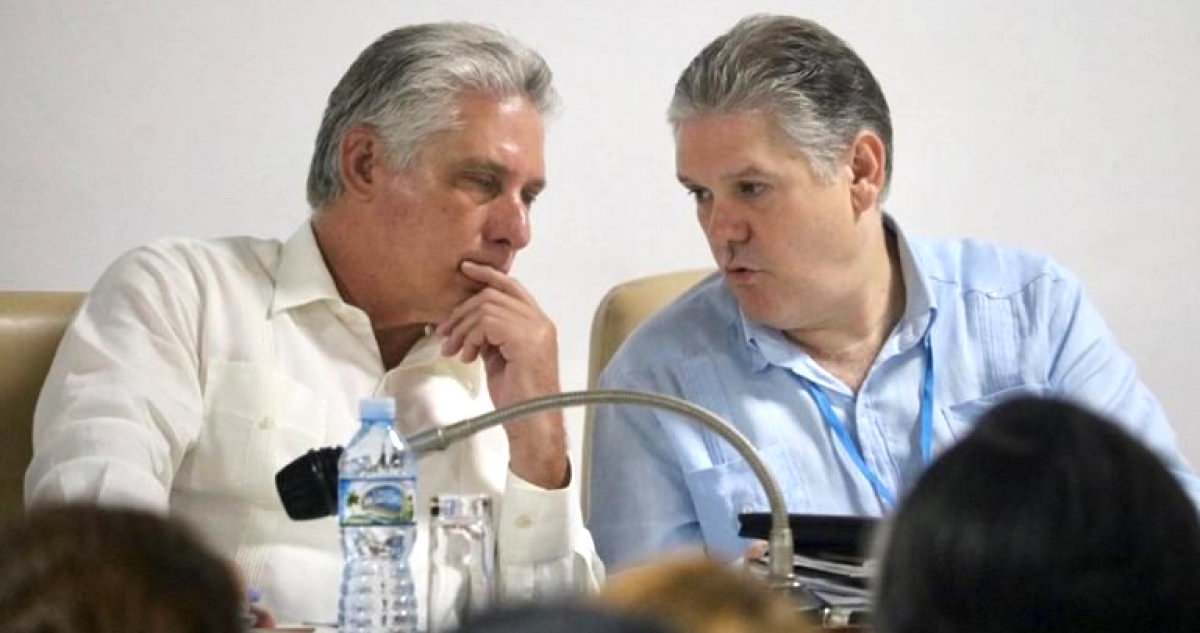This Monday at the Round Table Finance Minister Alejandro Gil described the economic situation on the island as "very tense": no revenue from tourism since March, with production partially paralyzed, thousands of employees out of work and, although exportable production was maintained, both demand and international prices fell. To this must be added 121 new measures in the last year alone under the US embargo, which is "stronger than ever."
Faced with this "tension", the plan seems to be to stay the course, adhering to the idea of "unleashing productive forces" - which does not mean liberalization, as no term according with freedom pleases the Government. Untying, in this case, is really just tying in another way.
Avoiding reform of its economic model, the Government limits itself to fine-tuning its centralized system, to make it as efficient as possible, in the hope that, after 61 years, it will suddenly realize how to make socialism work.
The measures that the minister has announced are nothing but an economic shell game. Their common denominator points in the right direction, but they are, intentionally, half measures, so as to maintain central economic control, the basis of social control.
Let's analyze the new regulations announced governing the production and marketing of food:
—Making the hiring of temporary workers more flexible: this means eliminating the hurdles that the same authorities erected to the hiring of temporary workers in the first place. Clearly, seasonal workers are not the only agricultural workforce required, and the rest are still beholden to the bureaucracy.
—New tax incentives for mini-industries, supporting municipal commercialization: they promote municipal autarky, creating artificial stimuli, contrary to the basic principle of territorial specialization, according to comparative advantages. The centralized design, thus, makes it difficult for goods to be made where there is the greatest demand, which is the only thing that would create the synergies necessary for long-term sustainability without the need for fiscal crutches.
—The sale of agricultural supplies in Freely Convertible Currency (in Cuba, MLC) from not only imports, but also from state-owned companies, which is simply outrageous. This a blatant and partial dollarization that creates two types of Cuban producers. The minister concluded: "well, whoever has that possibility can acquire them." An authentic lesson in socialism.
—Private producers will export through state companies: a parasitic bureaucracy thus arises to control what and to whom producers sell, charging producers for their services, while withholding 20% of the currency. Those fortunate souls who can export will receive foreign currency to buy supplies at stores in MLC, which the vast majority of agricultural workers will not be able to do.
—An Agricultural Development Bank, announced with much pomp, which is not a new, specialized bank. Rather, through existing bank offices it will issue agricultural loans based on a state budget that already had a deficit of 8% in 2018. What will they divert resources from to dedicate to this? Is there no one in the world interested in financing agricultural investment in Cuba? To make matters worse, the financing is exclusively for the most profitable farmers, something perfectly viable for a normal commercial bank. The question would be to capitalize the thousands of usufructuaries who have received marabou-infested plots, such that they cannot even get started. The experience of the Nobel laureate Muhammad Yanus in microcredits was ignored and, as if it were a joke, the aforementioned bank commences with a laughable 35 million pesos, less than a million and a half dollars.
—The transformation of wholesale and retail marketing: A Central Commercial Registry will be created. The idea is to allow more actors to get involved in the ideologically conflictive commercialization. According to Marxism, commercialization does not create value, hence the constant mistreatment of the sector. Will it be different this time?
—Elimination of the function of the Acopio Group. Excellent news! Freedom of production, contracting and sales for agricultural laborers. This is great! Well, let's not get ahead of ourselves. It will be replaced by a mechanism where "the State will maintain its regulatory role and local governments will have a greater responsibility in establishing prices, through agreements with the producers."
—A new design for state enterprises in Agriculture, prioritizing the organization of agro-industrial centers made up of cooperatives and farmers, with a vigorous application of science and innovation. This would be great if these centers emerged as the result of a bottom-up free market effect, rather than as politically determined macro-organisms.
The minister, on behalf of the Government, rejected the market system because "the supply and demand price is not fair under conditions of scarcity", such they will continue trying to overcome scarcity with the same mechanisms that generated it. "It is not as simple as letting the market run its course, and put these elements in order," he said, "the State has to play its regulatory role."
The measures are designed to give the model a facelift and expand it, not replace it, despite the fact that, in theory and practice, it has been shown to be a total failure.
